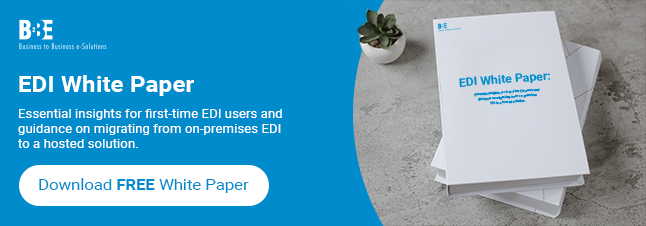In an era where seamless communication and efficient data exchange define business success, Échange de données informatisées (EDI) has emerged as a cornerstone for streamlined operations. This standardised method of transmitting business documents electronically between trading partners has revolutionised the way companies conduct transactions.
EDI standards define the format and elements used in electronic documents and ensure uniformity across systems. Common EDI standards include ANSI X12, EDIFACT, and XML. They ensure data is transmitted and interpreted smoothly resulting in faster, more secure and accurate transactions.
Let’s explore how businesses leverage EDI standards to optimise their operations and foster efficiency.
What is EDI?
Échange de données informatisées, or EDI, refers to the structured transmission of business data between computer systems using standardised formats. It replaces traditional paper-based methods with electronic documents, allowing for the seamless exchange of information such as purchase orders, invoices, shipping notices, and more.
How are standards such as EDI used by businesses?
Standards play a pivotal role in the effectiveness of EDI. These standards define the format, structure, and data elements used in electronic documents, ensuring uniformity and compatibility between different systems. Common standards like ANSI X12, EDIFACT, and XML facilitate the smooth transmission and interpretation of data across diverse platforms.
Utilisation of EDI by Businesses
- Enhanced Efficiency: Implementing EDI streamlines business processes by automating tasks that were previously manual. This leads to faster document processing, reduced errors, and improved operational efficiency.
- Économies de coûts: The transition from paper-based to electronic transactions reduces printing, mailing, and storage costs associated with traditional document exchange methods.
- Improved Accuracy: EDI minimises human errors inherent in manual data entry, ensuring greater accuracy and reliability in business transactions.
- Faster Transactions: Real-time data exchange also facilitates quicker order processing, invoicing, and fulfilment, enabling businesses to respond promptly to customer demands.
- Compliance and Security: EDI standards ensure compliance with industry regulations and data security standards, safeguarding sensitive information during transmission.
EDI Implementation Best Practices
- Collaboration with Partners: Engage trading partners and suppliers to ensure alignment and seamless integration of EDI systems.
- Scalability and Flexibility: Choose EDI solutions that can adapt and scale according to business needs and technological advancements.
- Training and Support: Provide adequate training and support to staff involved in EDI implementation to ensure smooth adoption and usage.
- Continuous Improvement: Regularly review and refine EDI processes to optimise efficiency and address evolving business requirements.
Conclusion
In conclusion, EDI standards have revolutionised the way businesses exchange information, enabling faster, more accurate, and secure transactions. By adopting EDI, companies can streamline operations, reduce costs, and enhance collaboration with partners, ultimately gaining a competitive edge in today’s fast-paced business landscape.
As technology continues to evolve, leveraging EDI and adhering to its standards will therefore remain crucial for businesses looking to drive efficiency, achieve operational excellence, and stay ahead in a dynamic marketplace.
Learn more about B2BE’s EDI solution.
À propos de B2BE
B2BE fournit des solutions électroniques pour la chaîne d'approvisionnement à l'échelle mondiale, aidant les organisations à mieux gérer leurs processus de chaîne d'approvisionnement, en fournissant des niveaux plus élevés de visibilité, d'auditabilité et de contrôle. Nous sommes animés par une passion pour ce que nous faisons, inspirés par l'innovation et soutenus par une richesse de connaissances. Avec plus de 20 ans d'expérience, les équipes de B2BE opèrent dans le monde entier.
Pour plus d'informations, visitez le site www.b2be.com.

